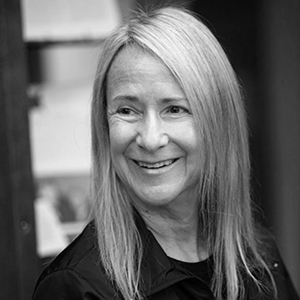Walking in Someone Else’s Shoes

As a teacher in the mid-1960s and ’70s, Margot Stern Strom, C.A.S.’77, was continually struck by all the important world history that children weren’t learning at school. The awful events of the previous half-century, such as the Holocaust, just were not being taught in class — and she wondered why children couldn’t be trusted to learn from these events. It was far more valuable, she thought, for children to learn about bigotry and hatred than to ignore them.
With Facing History and Facing Ourselves, Margot Strom gave us tools to explore complex issues like racism, anti-Semitism, and the differences that divide and unite us.

With a goal of helping students become more informed citizens, Strom co-developed a curriculum on the Holocaust for students in grades K–8 that, at first, would serve just one district. That single program soon evolved into the nonprofit organization Facing History and Ourselves, which, under Strom’s leadership over the course of 40 years, would grow to reach millions of students in more than 200 countries with a global network of over 100,000 teachers. Facing History helps students and teachers explore complex issues like racism, prejudice, hatred, difference, and anti-Semitism.
“It’s scary to walk in someone else’s shoes,” Strom told Harvard Ed. magazine in 2015. “But you can imagine it if you’re taught about it. There’s a need for truth telling and widening perspectives.”
Through Strom’s leadership and reach, she has helped millions of students “walk in each other’s shoes,” and given them the critical lens to understand what happens in history and the moral choices they may face in their own lives.
“As a seventh grader, I spent a year learning about the Holocaust through Facing History. Now, as a high school teacher whose students are all recent refugees and immigrants from more than 30 countries, I teach them Facing History. Margot and the organization she created have had an indelible impact on my perception of the world and my work as an educator,” says Jessica Lander, Ed.M.’15, a teacher at Lowell High School in Massachusetts whose We Are America Project counts Facing History among its partners. “Facing History challenges us to understand the many perspectives of history, including our own biases, and it calls us to action, to be upstanders with the power and responsibility to work toward a more just and equitable future for all." – Jill Anderson
Photo of Margot Stern Strom by Rinze Van Brug
Learn More and Connect
Explore Facing History's resources for educators.
Read about a study of Facing History's impact on educators and learners, conducted by researchers at the Harvard Graduate School of Education.
Read a profile of Margot Strom in Harvard Ed. magazine.
Learn about the We Are America Project which tells the stories of an inclusive America.
